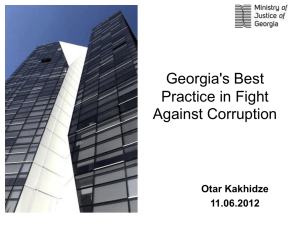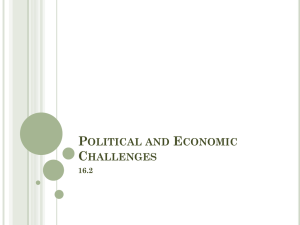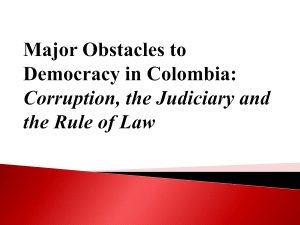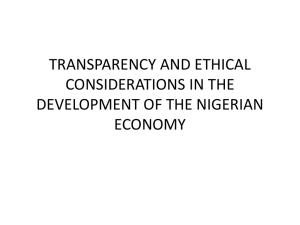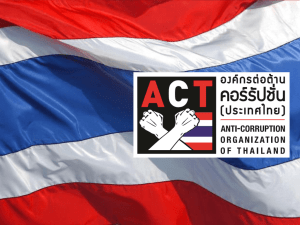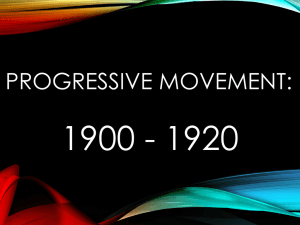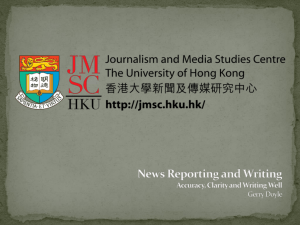Corruption and Development - ECON 3510 – African Economic
advertisement
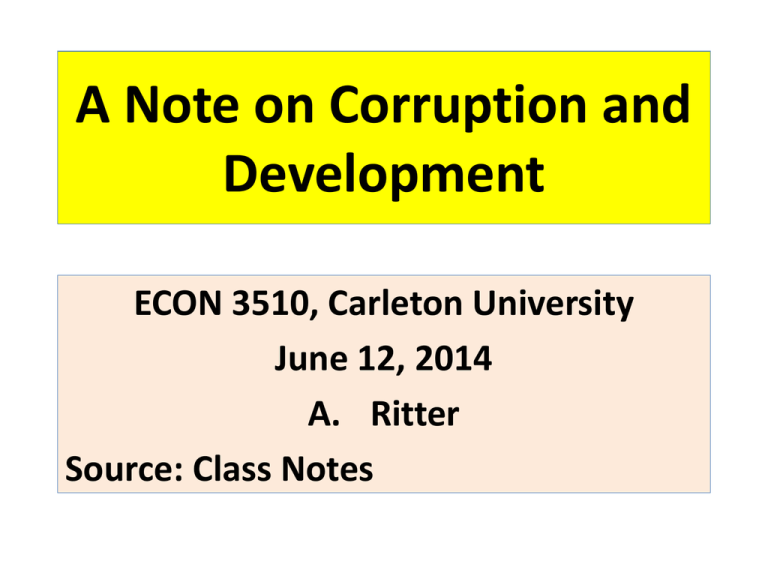
A Note on Corruption and Development ECON 3510, Carleton University June 12, 2014 A. Ritter Source: Class Notes The Problem of Corruption 1. Definition: What is corruption? The Problem of Corruption 1. Definition: • • Appropriation of public – or private – resources for private profit or use through the use of official power, influence, or access. Abuse of public – or private – trust, position or access for private gain; Transparency International’s Definition: Corruption is the abuse of entrusted power for private gain. It hurts everyone who depends on the integrity of people in a position of authority. Explanation of Corruption Perceptions Index • A composite index, a combination of surveys and assessments of corruption, collected by a variety of reputable institutions. • Corruption: illegal activities, deliberately hidden. Detected via scandals, investigations or prosecutions. • No meaningful way to assess absolute levels of corruption on the basis of hard empirical data. – Bribes reported, the number of prosecutions brought or court cases directly linked to corruption show how effective prosecutors, the courts or the media are in investigating and exposing corruption. • Capturing perceptions of corruption of those in a position to offer assessments of public sector corruption is the most reliable method of comparing relative corruption levels across countries. 2. Varieties of Corruption 2. Varieties of Corruption Theft of public property, goods or services; Illicit payments to suppliers or supporters for political gain; Use of public property for personal purposes; Influencing design or application of rules and regulations and permissions for personal gain 2. Varieties of Corruption, cont’d Twisting or influencing of public policy for personal gain by bribery Discriminatory provision of public services (to family, home town or ethnic group or political supporters) Nepotism: hiring from family or friends 3. Consequences of Corruption – – Unfairness; Impact on income distribution (Corruption as a regressive tax on the poor); – – – – – – Sacrifice or general well-being for personal interests; Parasitical impact on much economic activity; Slow-down of investment; Slow-down and deformation of economic growth; Deformation of public policy; Impairs ability of government to function in all areas due to erosion of “trust”. Source: Private Sector Development Blog. Corruption as a Regressive Tax: The Case of Ecuador 4. Solutions to Corruption? 4. Solutions to Corruption Make public expenditures and procurement transparent Eliminate unnecessary regulations and rules and make others simpler, more transparent; Reduce immunity of members of the executive, legislative and judicial branches from prosecution for wrong-doing; Promote civil service professionalism with adequate pay scales; meritocratic promotion policies; 4. Solutions to Corruption? continued Free media for shining lights in dark corners; Open Democracy, for scrutiny, criticism and rejection of corrupt leaders An independent judiciary; Separate financing of political parties from general government expenditures; Eternal vigilance

